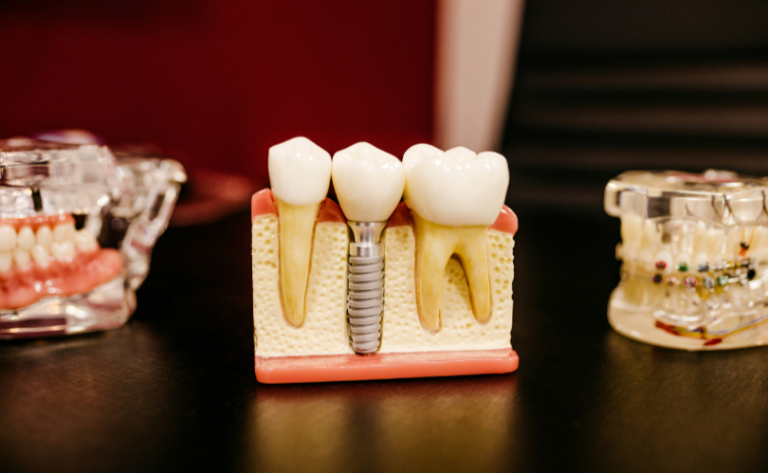Your teeth aren’t just essential for eating; they also play a big part in your overall personality and confidence. A bright, healthy smile can boost your self-esteem and leave a lasting impression, making it one of your most valuable assets.
But what happens when something threatens that smile? Tooth fractures, for instance, are surprisingly common yet often fly under the radar. Many people don’t even realize they have a cracked tooth until they experience discomfort, sensitivity, or worse, a painful break.
Tooth fractures can be more than just an inconvenience—they can lead to other serious dental issues if ignored. The good news is that they’re largely preventable if you make a few lifestyle adjustments.
Here, we’ll discuss some of the lifestyle changes you can implement to protect your teeth and maintain that beautiful smile. So, let’s get started.
How Common is Tooth Fracture?
Unlike a broken arm or leg, tooth fractures don’t always make themselves known right away. You might not notice any visible signs or immediate pain, which makes them much harder to detect.
A small crack in your tooth might go unnoticed until it grows or causes discomfort during everyday activities like chewing or drinking something cold.
A National Center for Biotechnology Information (NCBI) study revealed that these fractures are most common in children and young people.
They’re less common than other dental issues, accounting for only 5% of all traumatic dental injuries. However, despite all that, managing them the right way is still crucial if you don’t want the problem to escalate.
The front teeth of your upper jaw are most vulnerable to the threat of fractures, given their obvious position.
Now that you know the risks and what causes them, you’re in a great position to make sure it doesn’t happen to you.
Lifestyle Changes That Prevent Tooth Fracture
The great thing about preventing tooth fractures is that a few simple changes to your routine can make a huge difference. It’s all about being aware of the small habits and situations that put your teeth at risk and making smarter choices. Let’s guide you through them:
Wearing a Mouthguard on the Field
If you’re into sports, especially contact sports like football, hockey, or boxing, wearing a mouthguard is a must. It might not seem like a big deal, but a custom-fitted mouthguard can prevent serious tooth injuries, including fractures.
Nationwide Children’s Hospital notes that athletes are up to 60 times more likely to suffer dental damage when not wearing one. Whether it’s high-speed impacts or accidental collisions, sports are a prime cause of tooth fractures. Thus, it is essential to wear a mouthguard. It’s a small effort to make to protect that winning smile.
Managing Stress Healthily
Believe it or not, stress can really take a toll on your teeth. If you’re someone who grinds their teeth when stressed – a condition known as bruxism – you’re more likely to experience tooth fractures. According to the National Health Service (NHS), bruxism weakens your teeth over time, making them more prone to cracks and chips.
Stress is a part of life; you can’t avoid it. However, finding healthy ways to manage it can keep your teeth (and your mind) in much better shape. Some of these include meditation, improving your sleep cycle, getting fresh air, spending time in nature, and surrounding yourself with loved ones more often.
Choosing Medication with Caution
Wondering what medication has to do with tooth fractures? Well, this might come as a surprise to some of you, but certain drugs are deadly for your dental health.
Take Suboxone, for instance. This medication—taken in sublingual form—has been used to treat OUD (Opioid Use Disorder) for years, notes TorHoerman Law. However, its ill effects on patients’ dental health were revealed only recently.
In its wake, many consumers of the medication have come forward to file a Suboxone tooth decay lawsuit against its manufacturers.
Use Suboxone as a reminder to exercise caution with the medications you take, particularly those in sublingual form.
Avoiding Chewing on Hard Objects
Chewing on ice, biting your nails, or absentmindedly gnawing on pens may seem harmless, but these habits can lead to tooth fractures. Your teeth aren’t designed to handle the hardness of these objects, and over time, the pressure can cause small cracks that will eventually worsen.
Ice cubes, in particular, can be especially damaging due to their cold, hard nature. Breaking these habits will help you avoid unnecessary wear and tear on your teeth, keeping them strong and intact long-term.
Frequently Asked Questions (FAQs)
Can a broken tooth be fixed naturally?
Unfortunately, a broken tooth can’t heal or fix itself naturally—teeth aren’t like bones. But don’t worry; dentists have the tools to help. Depending on the damage, dental treatments like bonds, crowns, and veneers can restore your tooth’s look and function.
Is eating chewing gum bad for your teeth?
That depends on which chewing gum you’re eating. Healthline notes that sugar-free chewing gums are great for oral health and keep bad breath at bay. However, if you’re suffering from jaw pain, it’s best to avoid eating these.
Do fractured teeth cause swollen gums?
No, not always. Fractured teeth generally do not lead to swelling in the gums. So, if you notice a swelling followed by a fracture in your teeth, it’s a sign that your dentin-pulp has incurred some harm. This can result in an infection unless you get it treated immediately.
As you must’ve noticed, protecting your teeth is all about making simple, mindful changes. Whether it’s wearing a mouthguard, managing stress, or skipping that tempting ice cube crunch, small habits can go a long way. After all, your teeth are for life—let’s make sure they stay strong and healthy for years to come.

